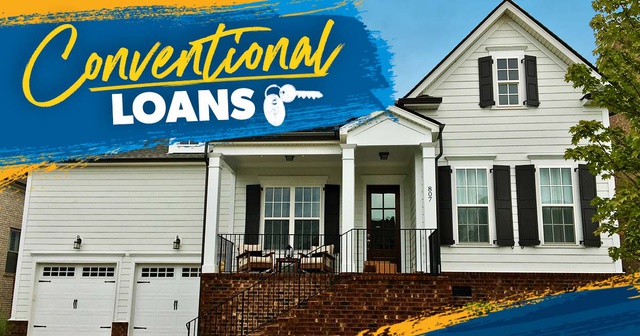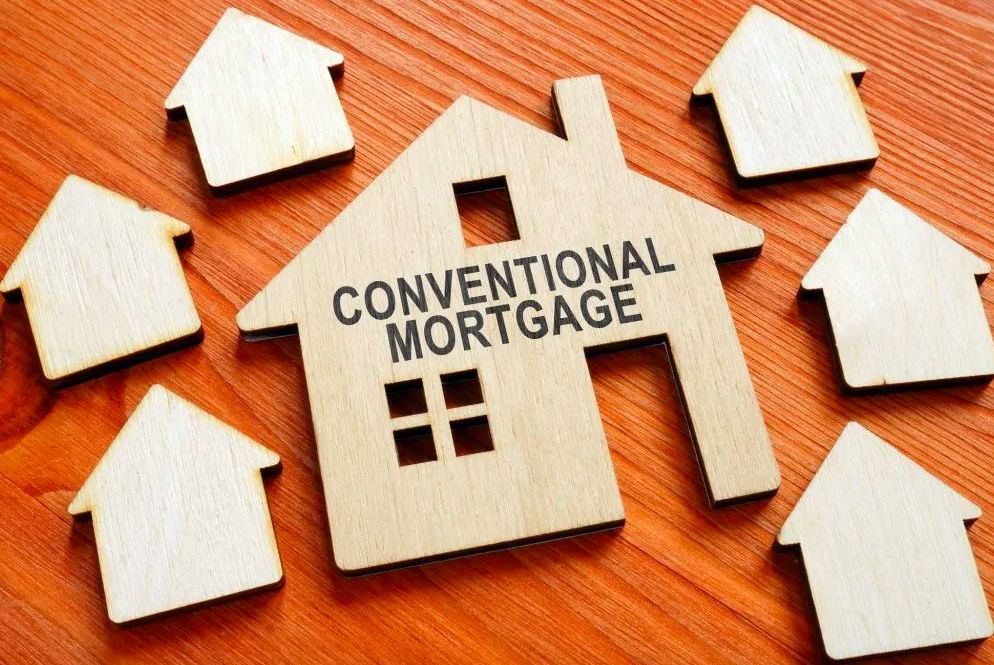A Conventional Mortgage or Loan is a mortgage loan that is not backed by a government agency. These Mortgage Loans come in every shape and size and they do not provide some of the benefits such as VA, FHA, or USDA loans, these loans remain the most common type of mortgage loan.
Conventional mortgage Loans are the most common type of home loan that is perfect for borrowers with a strong credit history and funds for more substantial down payments. Unlike other Mortgage Loans, the conventional mortgage requires a significant down payment. The length of most conventional mortgages is 15, 20, or 30 years.
To qualify for the conventional mortgage the borrowers are required to have a good credit score, however, the minimum credit score to be approved may vary from lender to lender. The 620 credit score is usually what the borrowers need to be approved and the 720 score will help the borrowers to secure the best rate possible.
What Is Conventional Mortgage?
A conventional mortgage or Loan is a homebuyer’s loan that is not secured by a government agency. The conventional mortgage is available through or guaranteed by a private lender or two government-sponsored enterprises (GSEs) such as Freddie Mac and Fannie Mae. To qualify for the conventional mortgage the borrowers need to complete the official mortgage application and provide the required documents, their credit history, and recent credit score. The interest rates of conventional mortgages tend to be higher than those of government-backed mortgages including Federal Housing Administration (FHA) Loans.
Conventional mortgages, typically have fixed interest rates, which means the rate of interest or conventional mortgage loans does not change throughout the life of the loans. These Mortgages are not guaranteed by the federal government and typically result in strict lending requirements by the banks and creditors. Various govt agencies offer conventional mortgages for banks including FHA, the US Department of Veterans Affairs (VA), and the U.S. Department of Agriculture’s (USDA’s) Rural Housing Service.

How Does Conventional Mortgage Work?
Conventional Mortgages are backed and serviced by private mortgage lenders such as banks, credit unions, and other financial institutions. These Loans are broken down into conforming Mortgage and non-conforming mortgages. It depends upon whether or not they conform to guidelines set by the Federal National Mortgage Association (Fannie Mae) and the Federal Home Loan Mortgage Corporation (Freddie Mac). Both of these are government-backed mortgage companies that offer mortgage services in the United States of America. Some of the Features of Conventional Mortgage are :
- The borrowers can get approved for a conforming conventional loan with a credit score as low as 620, however, some of the lenders may ask for a score of 660 or better.
- The conventional mortgage loans’ down payment requirements are as low as 3%, however, some of the lenders have special programs that offer up to 100% financing.
- As per the latest report in 2023, the conventional mortgage loans go as high as $647,200 for single-family homes. In case the borrowers are looking for bigger loans then they may go to a Jumbo Loans.
- The Loan Terms of Conventional Mortgages are typically repaid over a 30-year, but it is possible to qualify for a 15-year or 20-year conventional mortgage loan.
- The Interest rates of Conventional Mortgages largely depend on borrowers’ credit score and overall credit history. The better the credit is, the less the borrowers will pay in interest over the life of the loan.
Types of Conventional Mortgage Loans
Various types of Conventional Mortgage Loans may come across the borrowers can compare lenders and mortgage options. Here are some of the most common Conventional Mortgage Loans:
- Conforming Conventional Mortgage: These Loans adhere to the standard set by Fannie Mae and Freddie Mac including the maximum loan amount.
- Jumbo Loans: These Loans allow to borrow more than the maximum lending limit for conforming loans. However, the Jumbo Loans require higher credit scores, larger down payments, and lower debt-to-income ratio (DTI).
- Subprime Loans: There should be a DTI below 50% and a credit score of 620 or higher in Conventional Mortgage Loans. In case, if the Credit score is not quite there then borrowers may qualify for the Subprime Loans.
- Portfolio Loans: In Portfolio Loans, lenders choose their portfolio rather than selling it on the secondary market.
- Amortized Conventional Mortgage: In these Loans, homebuyers set monthly payments from the start to the end of the loan repayment period, without a balloon payment. These Loans can be either fixed-rate mortgages or Adjustable-rate Mortgages.
- Adjustable-rate mortgage: With these Mortgages the borrowers will get fixed interest rates for the set period, typically three to 10 years. After that, the rate of interest can vary every year.
How To Qualify for the Conventional Mortgage Loan?
If you are looking to Apply for a Conventional loan, then here are some steps to qualifying for one:
Before Applying for a conventional loan, borrowers have to check their credit score. if the credit score is 620 or higher, then it’s a chance to get approved for a conforming conventional loan. And if it’s in the mid-to-upper-700s, then the borrowers have a better chance of qualifying for favorable terms on a new loan.
- Most Conventional Mortgages don’t require big down payments, however, the more money they put down the better their chances of getting lower interest rates.
- Now The lenders typically see the total monthly debts that should not be more than 36% of monthly gross income. However, in some cases, the Lenders may stretch their required DTI to 43% or higher, the maximum Freddie Mac and Fannie Mae will allow for conforming loans is 50%.
- Now borrowers need to take some time to look at different mortgage lenders, such as the rates they’re offering, how the application process works, and whether they can do it online.
- If the Borrowers meet certain conditions, a letter from a mortgage lender (mortgage preapproval), lending up to a certain amount of money for buying a home will be provided.
Conventional Mortgage Reviews
The Conventional Mortgage is not directly insured by the Govt Program. Most Conventional Mortgages are also “Conforming” loans which means they meet the requirements for Fannie Mae or Freddie Mac. Conventional mortgages are available with various term options with most people choosing between 15-years and 30-years loan terms. Here are some Pros and Cons of the Conventional Mortgage Loans:
Pros:
- Low Costs
- Higher Loan Limits with Jumbo Conventional Loans.
- Private mortgage lenders have more flexibility with conventional loans
Cons:
- The borrowers typically need credit scores of at least 620 to qualify for a conforming conventional loan.
- Few conventional loan programs allow put down 3% or even nothing at all if you’re a first-time homebuyer, but expect to pay 5% after that.
- Stricter qualifying guidelines
Frequently Asked Questions (FAQs)
Question 1: How Many Conventional Mortgages can I have at one time?
Answer: Technically you can have up to ten Conventional Mortgage in your name. However, if you are interested in real estate investing, then you may be able to use alternative financing methods to buy various properties without applying for multiple Conventional Mortgages.
Question 2: Can I get Down Payment assistance with the Conventional Mortgage?
Answer: Yes, you can qualify for the Down Payment assistance with your Conventional Mortgage.
The Bottom Lines
Conventional Mortgage generally offers lower costs than other loan types, and if the borrowers meet credit score requirements and want a down payment of as low as 3% then the Conventional Mortgage Loans might be the best solution for you. The Conventional Mortgage Loan process can take a long time from beginning to finish, however, taking each step carefully may help you get the best deal for your situation.
